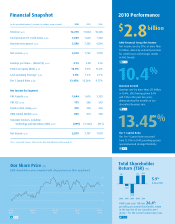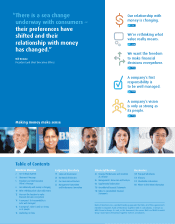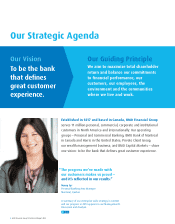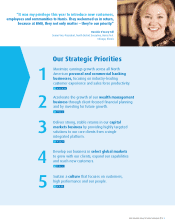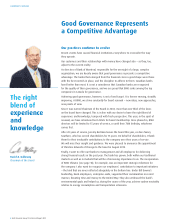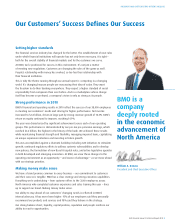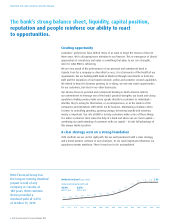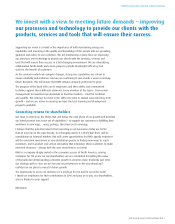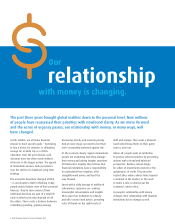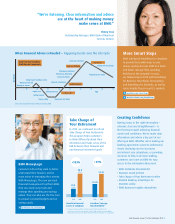Bank of Montreal 2010 Annual Report Download - page 10
Download and view the complete annual report
Please find page 10 of the 2010 Bank of Montreal annual report below. You can navigate through the pages in the report by either clicking on the pages listed below, or by using the keyword search tool below to find specific information within the annual report.
8 BMO Financial Group 193rd Annual Report 2010
As life unfolds, we all make financial
choices to meet specific goals – borrowing
to buy a home, for instance, or allocating
savings for a family trip or a child’s
education. Over the past decade, such
decisions were too often made without
reference to the bigger picture. The appeal
of immediate answers took precedence
over the merits of a balanced, long-term
strategy.
The economic downturn changed all that
– or accelerated a shift in thinking. Today
people want a holistic view of their personal
finances. They’re more aware of how
individual decisions are part of a total life
cycle in which each step depends on all
the others. There exists a balance between
controlling spending, growing savings,
The past three years brought global realities down to the personal level. Now millions
of people have reassessed their priorities with newfound clarity. As we move forward
and the sense of urgency passes, our relationship with money, in many ways, will
have changed.
with money is changing.
Our
relationship
borrowing smartly and investing wisely.
And at every stage, we need to feel that
we’re reasonably protected against risk.
As the economy slowly regains momentum,
people are examining how they manage
their money and asking tougher questions
of themselves. Equally, they believe that
financial institutions have a responsibility
to understand their situation, offer
straightforward advice and lead the
way forward.
Faced with a daily barrage of unfiltered
information, customers are seeking
meaningful conversations and insights.
They expect an institution to educate
and offer counsel and advice, providing
rules of thumb on the right levels of
debt and savings. They want a financial
coach who’ll keep them on their game
year in, year out.
Above all, people want an institution
to practice what it preaches by presenting
options with a broad and balanced
perspective. Bankers cannot simply
be sellers
of investment products or the
gatekeepers of credit. They must be
trusted allies whose advice looks beyond
a moment in the market, or the wish
to make a sale, to always put the
customer’s interest first.
As people’s relationship with money
changes, their relationship with financial
institutions has to change as well.


